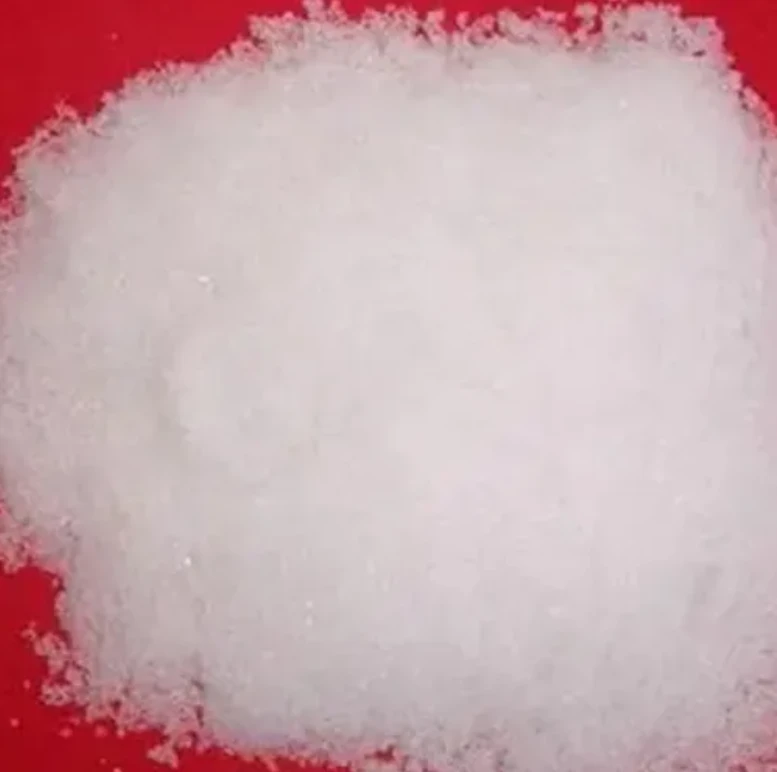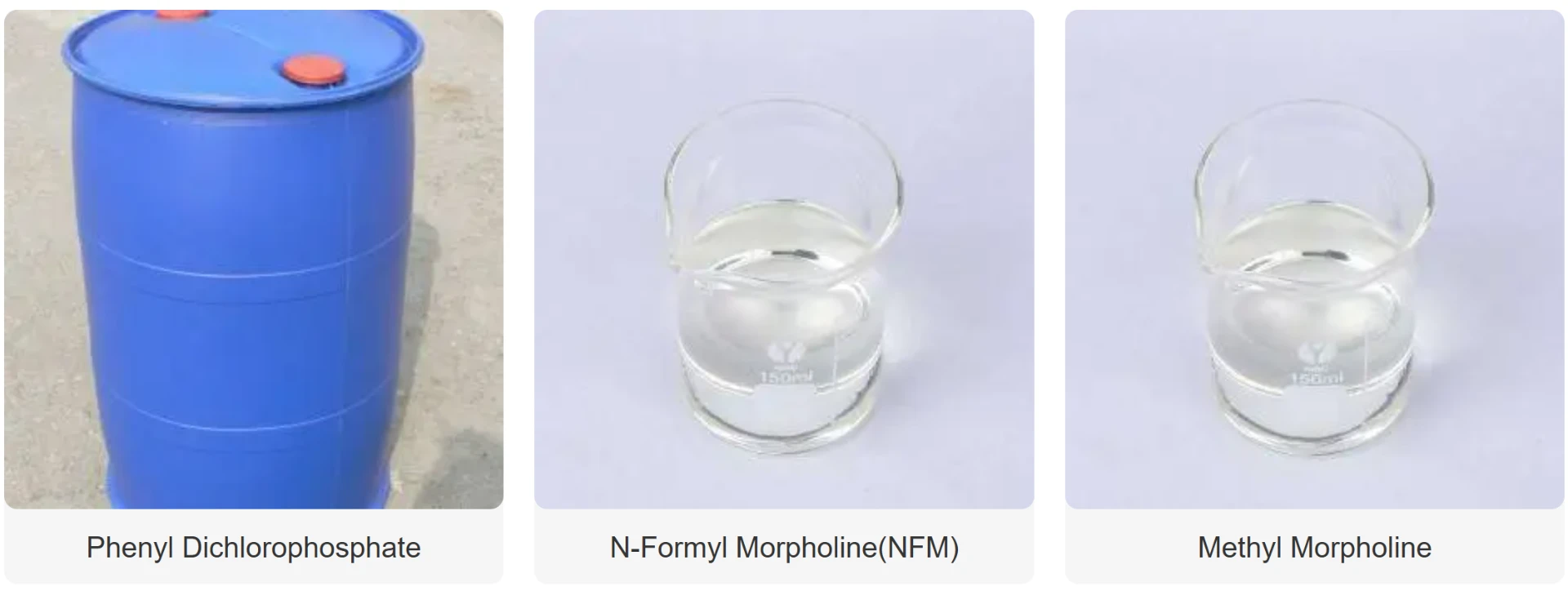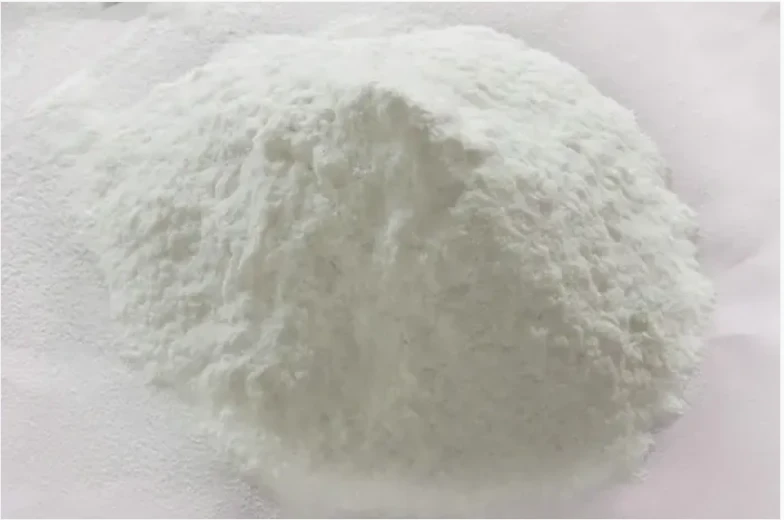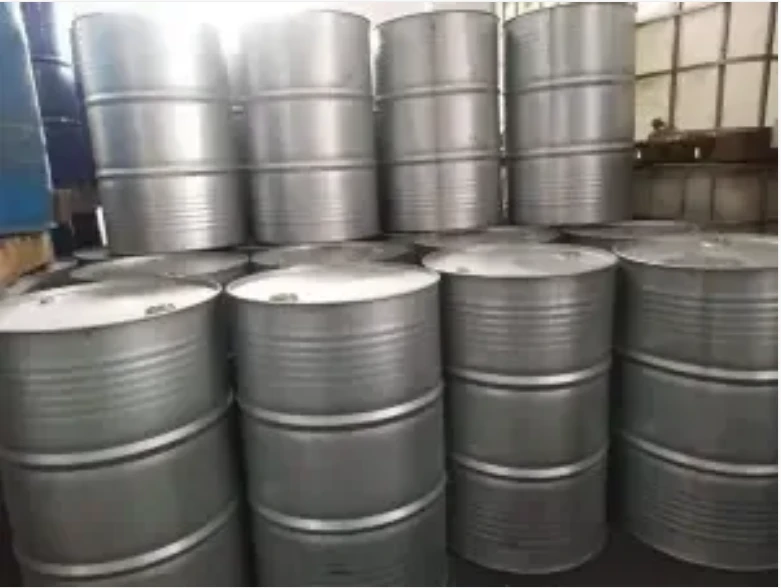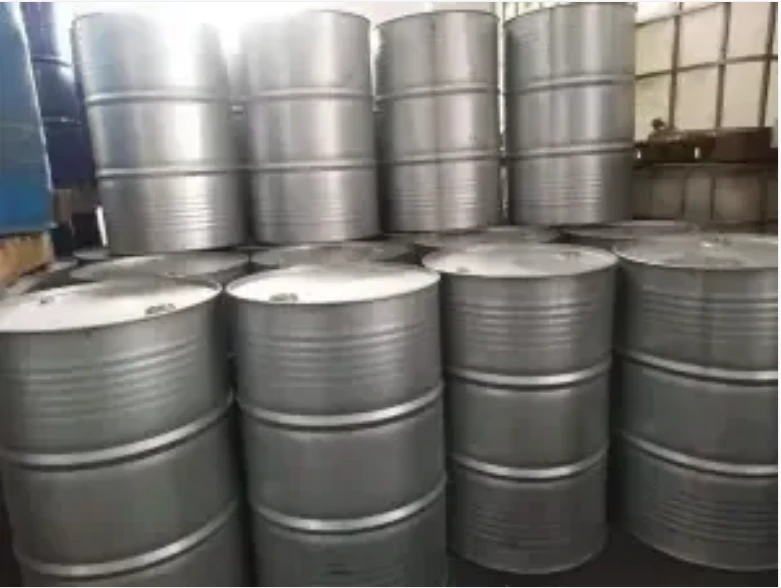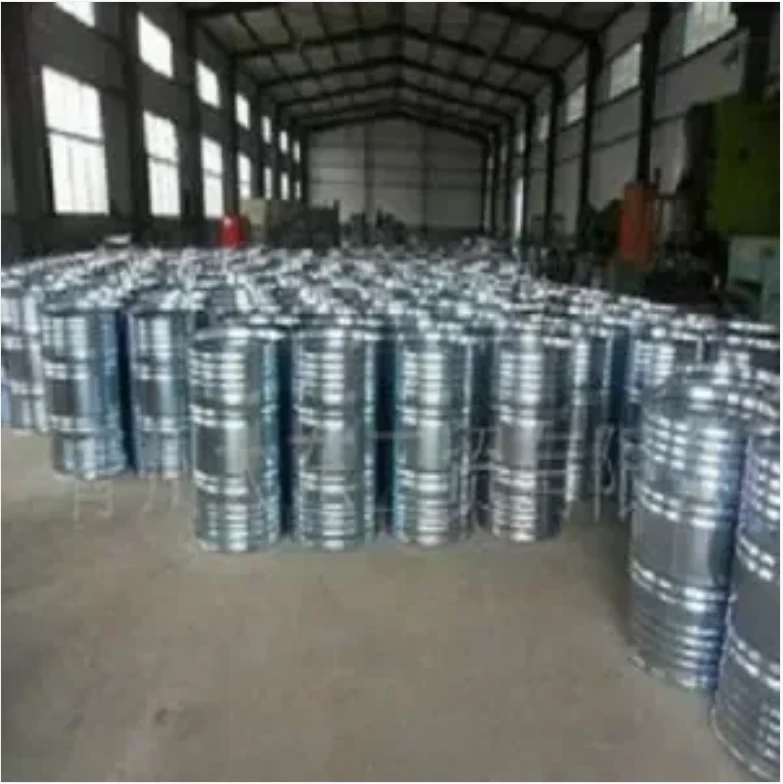Cyclopropyl Methyl Ketone - High Purity Chemical Intermediate
The Strategic Significance of Cyclopropyl Methyl Ketone in Advanced Chemical Synthesis
In the highly specialized realm of fine chemicals, Cyclopropyl Methyl Ketone stands as a critical building block, pivotal for synthesizing a diverse array of advanced compounds. This versatile intermediate, characterized by its unique cyclopropyl group and carbonyl functionality, offers unparalleled reactivity and structural flexibility. Its importance transcends mere commodity status, emerging as a cornerstone in the development of next-generation pharmaceuticals, innovative agrochemicals, and distinctive fragrance components. The chemical industry's increasing demand for chiral molecules and highly specific synthetic pathways further elevates the profile of this compound, underscoring its role in facilitating novel chemical transformations and enabling the creation of high-value-added products that meet stringent industry specifications.
Understanding the comprehensive lifecycle of Cyclopropyl Methyl Ketone, from its meticulous manufacturing processes to its extensive applications and the critical quality parameters that define its efficacy, is essential for industry professionals. This insight is crucial for fostering innovation, ensuring product integrity, and maintaining competitive advantage in a rapidly evolving market. The compound's structural integrity allows for highly selective reactions, minimizing unwanted by-products and maximizing yield, which is a significant economic and environmental advantage in large-scale industrial syntheses.
The Meticulous Manufacturing Process of Cyclopropyl Methyl Ketone
The production of Cyclopropyl Methyl Ketone is a sophisticated chemical synthesis process, demanding precision at every stage to ensure high purity and yield. One common industrial route involves the cyclopropanation of methyl vinyl ketone. This process typically initiates with a reaction between an olefin (like methyl vinyl ketone) and a cyclopropanating reagent, such as the Simmons-Smith reagent (diiodomethane and zinc-copper couple) or a sulfur ylide. The choice of catalyst and reaction conditions—including temperature, pressure, and solvent—is critical for directing the reaction towards the desired product and minimizing side reactions that could lead to impurities. Advanced manufacturing facilities adhere strictly to established protocols, often employing continuous flow reactors for enhanced safety and efficiency, ensuring consistent product quality across large batches.
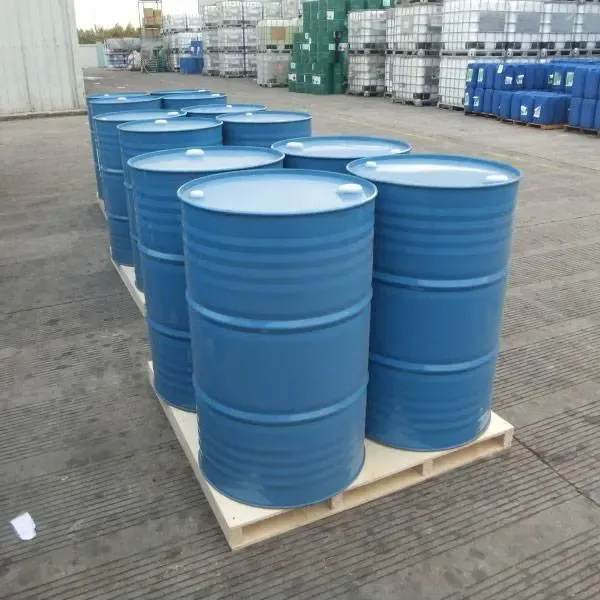
Illustrative image depicting the precision involved in chemical synthesis, crucial for producing high-quality Cyclopropyl Methyl Ketone.
Following the primary reaction, extensive purification steps are indispensable. These often include fractional distillation, where precise temperature control separates Cyclopropyl Methyl Ketone from unreacted starting materials, solvents, and any generated by-products, achieving high levels of purity. Modern facilities also utilize advanced filtration techniques and chromatography for ultra-high purity requirements, especially for pharmaceutical-grade applications. Rigorous quality control, adhering to international standards such as ISO 9001, is integrated throughout the process. This involves in-process testing using techniques like Gas Chromatography (GC) and Nuclear Magnetic Resonance (NMR) spectroscopy to monitor reaction progress and product composition, guaranteeing that the final product meets specified purity thresholds, typically exceeding 99%. This meticulous attention to detail during manufacturing ensures excellent product stability and a reliable shelf life, making it suitable for demanding applications in industries like petrochemicals and specialty chemicals where purity directly correlates with process efficiency and end-product quality.
Key Technical Parameters and Specifications of Cyclopropyl Methyl Ketone
For B2B buyers and technical personnel, understanding the precise technical parameters of Cyclopropyl Methyl Ketone is paramount for ensuring compatibility with existing processes and achieving desired outcomes in new synthetic pathways. These specifications dictate the compound's reactivity, stability, and suitability for various applications. Adherence to strict analytical standards and consistent batch quality are hallmarks of reliable suppliers, providing confidence in the chemical's performance. The detailed table below outlines the typical properties and specifications, which are verified through comprehensive analytical reports for each production lot.
| Parameter | Specification/Value | Test Method |
|---|---|---|
| CAS Number | 765-43-5 | Reference Standard |
| Molecular Formula | C₄H₆O | Calculated |
| Molecular Weight | 70.09 g/mol | Calculated |
| Appearance | Clear, Colorless Liquid | Visual Inspection |
| Purity (GC) | ≥ 99.0% | Gas Chromatography (GC) |
| Boiling Point | 112-114 °C (760 mmHg) | Literature Value / Experimental |
| Density (25°C) | ~0.90 g/mL | Pycnometer |
| Water Content | ≤ 0.1% | Karl Fischer Titration |
These detailed specifications ensure that Cyclopropyl Methyl Ketone can be reliably integrated into various complex syntheses, from laboratory-scale research to industrial production. The consistency in these parameters is critical for industries where slight variations can significantly impact reaction yields, product quality, and regulatory compliance. Robust analytical support and comprehensive Certificates of Analysis (CoA) accompany each shipment, providing complete transparency and traceability, reinforcing confidence in the product's quality and its suitability for diverse high-stakes applications.
Expansive Applications and Technical Advantages of Cyclopropyl Methyl Ketone
The unique molecular structure of Cyclopropyl Methyl Ketone, featuring a strained cyclopropyl ring adjacent to a ketone group, bestows upon it exceptional reactivity and versatility, making it a highly valued intermediate across several key industries. In the pharmaceutical sector, it is indispensable for synthesizing a wide range of active pharmaceutical ingredients (APIs), especially those requiring a cyclopropyl moiety known for enhancing metabolic stability and lipophilicity. This includes antiviral agents, central nervous system (CNS) active compounds, and specific cardiovascular drugs, where the cyclopropyl group can improve bioavailability or modulate receptor binding affinities. The ability to introduce this specific structural feature precisely and efficiently is a significant technical advantage, accelerating drug discovery and development processes.
Beyond pharmaceuticals, Cyclopropyl Methyl Ketone plays a crucial role in the agrochemical industry. It serves as a precursor for various herbicides, fungicides, and insecticides, where the cyclopropyl ring contributes to the biological activity and stability of the final product, often enhancing efficacy or reducing environmental impact. In the fragrance and flavor industry, its derivatives can impart unique, desirable aromatic profiles, contributing to complex formulations. The technical advantages of using Cyclopropyl Methyl Ketone stem from its high reactivity and selectivity in reactions such as Wittig reactions, Reformatsky reactions, and various organometallic couplings. These enable precise bond formation and the creation of stereospecific products, leading to higher yields and reduced purification burdens. Its consistent quality and excellent chemical purity translate directly into optimized reaction performance, yielding significant benefits in terms of process efficiency and overall production costs, positioning it as a strategically advantageous chemical intermediate for demanding applications requiring high specificity and reliability.
Choosing Your Supplier: The Sincere Chemicals Advantage for Cyclopropyl Methyl Ketone
When sourcing Cyclopropyl Methyl Ketone, the selection of a reliable supplier is paramount. While numerous manufacturers exist, key differentiators like product purity, consistency, regulatory compliance, and robust customer support define a superior partnership. Sincere Chemicals, for instance, distinguishes itself through a steadfast commitment to high-purity Cyclopropyl Methyl Ketone, consistently exceeding 99.0%. This superior purity directly translates to higher yields and fewer purification steps for our clients, leading to significant cost savings and enhanced efficiency in their downstream syntheses. Our manufacturing processes are rigorously controlled under ISO 9001 quality management systems, ensuring batch-to-batch consistency and complete traceability, which is critical for highly regulated industries such as pharmaceuticals and specialty chemicals.
Beyond product quality, Sincere Chemicals offers comprehensive technical support and flexible customization options. We understand that each client's specific synthetic requirements can vary, prompting us to offer tailored packaging, specific concentration solutions, and adaptable delivery schedules to align perfectly with production timelines. Our clients frequently report seamless integration of our Cyclopropyl Methyl Ketone into their existing processes, highlighting its consistent reactivity and predictable outcomes. This commitment to both product excellence and client-centric service has fostered long-term partnerships, underpinned by mutual trust and shared success. With decades of experience in the fine chemical industry, our authoritative standing is reinforced by a proven track record of reliable supply and responsive technical assistance, making us a preferred partner for demanding chemical applications globally.
Frequently Asked Questions (FAQ) about Cyclopropyl Methyl Ketone
Q1: What are the typical storage conditions for Cyclopropyl Methyl Ketone?
Cyclopropyl Methyl Ketone should be stored in a cool, dry, and well-ventilated area, away from direct sunlight and sources of ignition. It is recommended to keep the container111 tightly closed to prevent moisture absorption and evaporation, ideally in original sealed container111s. Long-term stability is best maintained under inert atmosphere, if possible, to prevent oxidation. Adherence to these conditions ensures product integrity and optimal performance over its warranted shelf life.
Q2: What is the standard delivery cycle for bulk orders?
Our standard delivery cycle for bulk orders of Cyclopropyl Methyl Ketone typically ranges from 1 to 3 weeks, depending on the destination and specific order size. We maintain sufficient stock levels for immediate dispatch of common quantities. For customized or very large orders, a more precise lead time will be provided upon inquiry, taking into account production schedules and logistics. We prioritize efficient and secure global shipping to meet your operational demands promptly.
Q3: What quality assurance and warranty are provided for Cyclopropyl Methyl Ketone?
We provide a comprehensive Certificate of Analysis (CoA) with every batch of Cyclopropyl Methyl Ketone, guaranteeing its purity and adherence to specified technical parameters. Our products are manufactured under strict ISO 9001 quality management systems. We offer a warranty against defects in material and workmanship for a period of 12 months from the date of delivery, ensuring our product meets or exceeds industry standards. Our dedicated technical support team is always available to address any questions or provide assistance post-purchase.
References
- Smith, R. D., & Simmons, H. E. (1958). Cyclopropane derivatives from olefins, diiodomethane, and zinc-copper couple. Journal of the American Chemical Society, 80(2), 370-370.
- Corey, E. J., & Chaykovsky, M. (1962). Methylsulfinyl carbanion (dimsylsulfinyl carbanion). Reactions with esters, ketones, aldehydes, and nitriles. Journal of the American Chemical Society, 84(5), 868-869.
- Trost, B. M., & Fleming, I. (1991). Comprehensive Organic Synthesis: Selectivity, Strategy and Modern Synthetic Methods (Vol. 5: Carbon-Carbon Bond Formation). Pergamon Press.
Post time: Aug . 11, 2025 14:20











